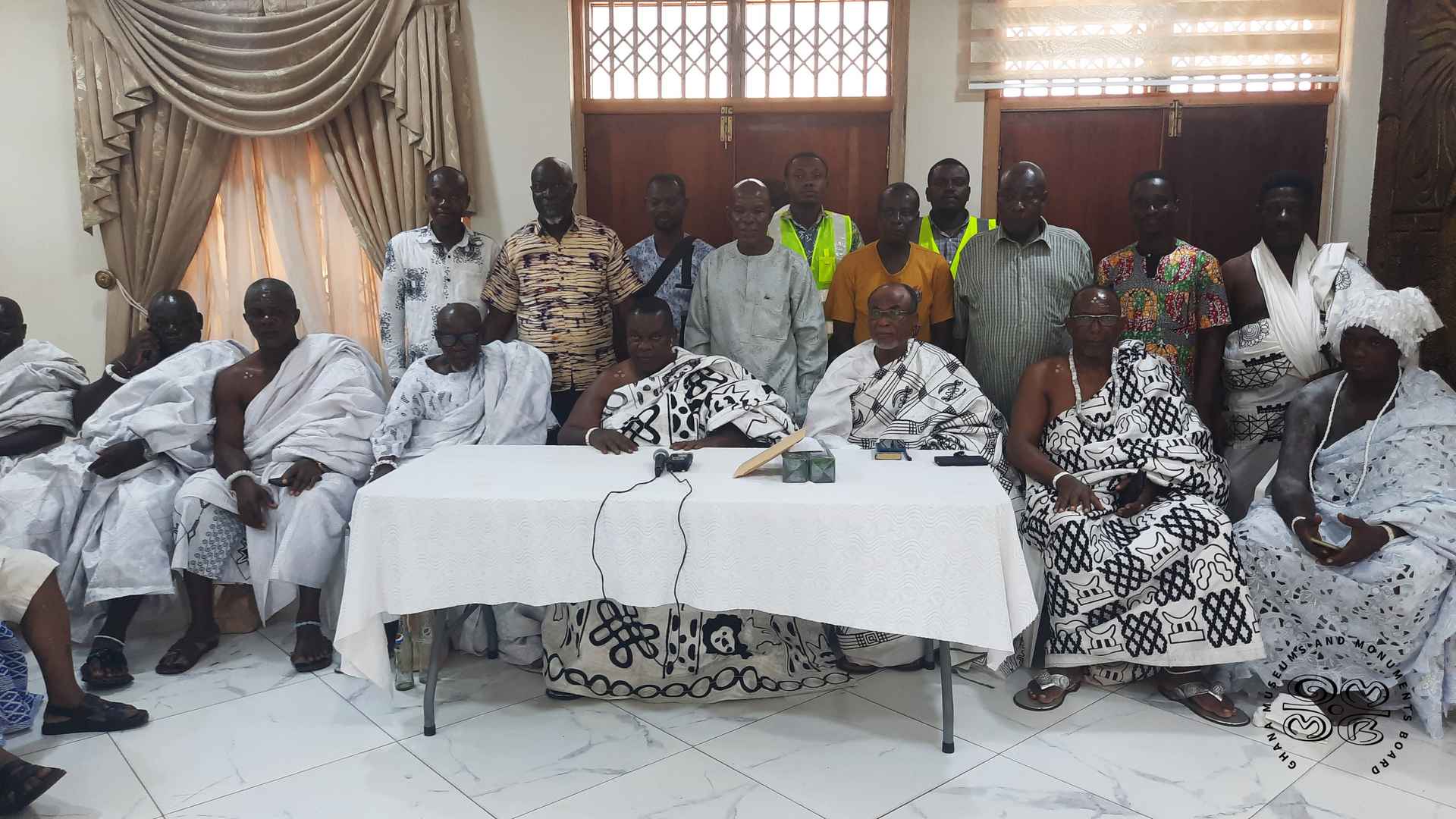The Ghana Museums and Monuments Board (GMMB) was honoured to join His Royal Majesty, Dr. Nii Ayi-Bonte II, Gbese Mantse and Adonten of the Ga State, at his palace on the occasion of the traditional rites marking the commencement of the Ban on Drumming and Noise-Making in the Gbese Traditional Area.
This annual ritual, an essential part of the spiritual preparation toward the Homowo Festival, reflects the deep cultural values of the Ga people. The period of solemnity, observed through the ban on drumming, clapping, loud music, and public gatherings, is a sacred time for peace, reflection, and unity. The GMMB deeply respects and aligns with these cultural observances, recognizing the interconnectedness of intangible cultural heritage with tangible heritage sites.
Led by the Executive Director, Mr. Essel Blankson, and supported by senior management staff, the GMMB delegation used this symbolic opportunity to formally inform the Gbese Mantse of the upcoming remedial and restorative works on Ussher Fort and James Fort—two historic Ga heritage sites located in the heart of Ga Mashie.
Ussher and James Forts: Symbols of Ga and Ghanaian Resilience
Ussher Fort and James Fort are more than architectural remnants of the colonial era—they are physical testaments to centuries of resistance, identity, and shared memory. Located within the jurisdiction of the Ga State, particularly the Gbese area, these sites have seen periods of neglect but remain central to the cultural and historical narrative of the Ga people and the nation at large.
After decades of limited intervention, these forts are now part of a major government initiative to restore and preserve Ghana’s most iconic heritage sites. The restoration project aims to revitalize six selected forts and castles across the country, improve staff capacity, and enhance community engagement.
Community Involvement at the Core
The GMMB’s engagement with the Gbese Mantse reflects its collaborative approach to heritage management. The Board is committed to working closely with traditional leaders, local authorities, and community members to ensure that restoration activities are respectful, inclusive, and beneficial to all stakeholders.
A Shared Commitment to Cultural Continuity
The GMMB’s participation in the traditional rites ahead of the drumming ban highlights its dual mandate: to preserve both tangible and intangible heritage. In recognizing the spiritual importance of the ban and integrating traditional authority into restoration planning, the Board continues to champion a holistic, community-centered approach to safeguarding Ghana’s cultural heritage.
